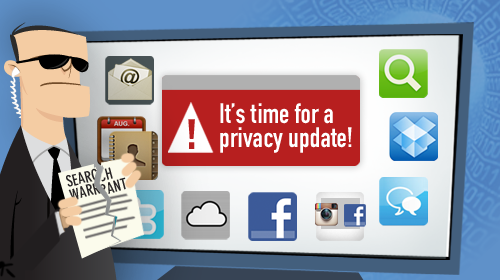
Something remarkable happened last night: A bipartisan majority in the House of Representatives agreed on something.
Yesterday, Reps Reps. Ron Desantis (R-Fla.) and Cedric Richmond (D-La.) became the 217th and 218th members of the House to sign on to the Email Privacy Act. More than half of the 435 members of the House of Representatives now formally support updating the outdated law governing the privacy of our electronic communications and requiring police to get a warrant before they read our emails, look at our online photo albums, or view our texts. Among those 218 members who have endorsed reforming the Electronic Communications Privacy Act (ECPA) are 136 Republicans – more than half of the members of the majority party.
To be crystal clear – this means that if the bill was brought to the floor tomorrow, it would be guaranteed to pass. In fact, it would likely pass with a large majority. After all, an overwhelming majority of Americans support the change – more than 84 percent in a recent poll of key states.
Nor is law enforcement standing in the way. Last week, FBI Director Comey said that the bureau always requires a warrant for communications and that ECPA reform "won't have any effect on our practice." Only a few administrative agencies – for example, the Securities and Exchange Commission (SEC) – have objected to the changes, largely in an effort to expand their own powers.
We have passed a key juncture.
The law can finally take a giant leap in catching up with technology. The onus is now on the House and its leadership to explain why this bill isn't on the House floor and on its way to passage. They also should answer why we have yet to update an online privacy law that was passed before the World Wide Web was even invented.
We can have better privacy laws, and we can have them right now.
Check here to see if your representative is a supporter of ECPA reform.
Learn more about ECPA and other civil liberty issues: Sign up for breaking news alerts, follow us on Twitter, and like us on Facebook.
Stay informed
Sign up to be the first to hear about how to take action.
By completing this form, I agree to receive occasional emails per the terms of the ACLU's privacy statement.
By completing this form, I agree to receive occasional emails per the terms of the ACLU's privacy statement.

